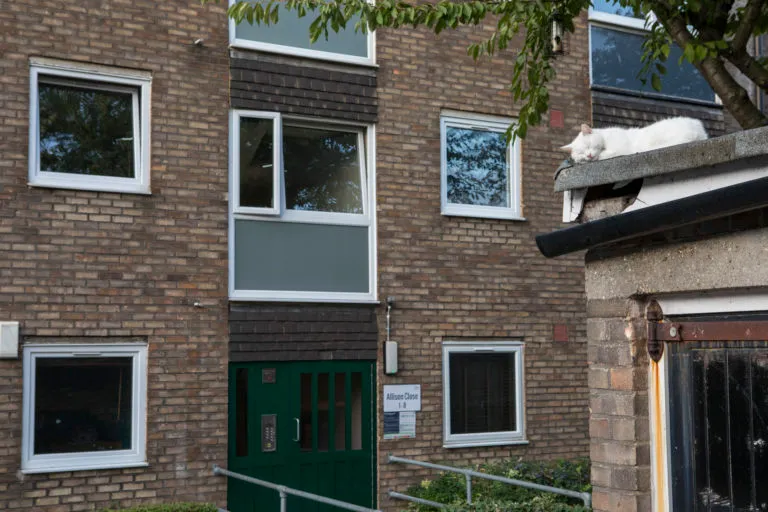Britain’s housing stock needs an urgent upgrade
Published: by Guest blog

This is a guest blog by Dr Jonathan Marshall, Head of Analysis at the Energy and Climate Change Intelligence Unit.
The UK’s housing stock is in a dire state. Tens of millions of families live in homes that are poor at keeping the heat in, wasting far more heat than is the case for our European neighbours.
For the sake of our health, our wallets and the impact on climate change, Britain’s homes are in need of an upgrade. At the same time, regulations to ensure that new homes are net zero ready have been lobbied into the long grass.
Lockdown and coronavirus (COVID-19) restrictions only highlight these issues, and the problem for those in the worst-insulated homes. All of our energy bills will rise as we spend more time indoors, but recent ECIU research found that monthly outgoings for families in the leakiest homes would increase by £49 more than for those in well-insulated houses.
The Government has taken tentative steps toward upgrading our homes so they don’t let the winter cold in. The 2019 Conservative manifesto pledged more than £9 billion for building upgrades over 10 years, of which £3.8bn would form a Social Housing Decarbonisation Fund.
But while financial support to renovate privately-owned homes has been accelerated, delivery of upgrades for social housing remains sluggish and backloaded toward the end of this parliament and into the next.
Upgrading efficiency
Upgrading the efficiency of the nation’s homes brings immense benefits beyond curbing emissions. A well-designed scheme is an exceptional creator of long-term and high-skilled employment in all corners of the country, cutting bills and freeing up household budgets so more money can be spent in local economies, and bringing a litany of health benefits that come with more pleasant living conditions.
A well-designed scheme is also one that places the experience of residents at its heart. Engaging with residents and ensuring that investment brings with it the benefits that they want is vital to the success of any retrofitting and upgrading programme.
There is also notable overlap between regions in need of a post-covid boost, and those with homes in the worst state.
Blackpool, Wolverhampton and Middlesbrough have been hit hard by coronavirus, seeing some of the highest unemployment rates in the country – and many of those particularly affected are the skilled tradespeople that a home upgrades programme would target.
Across these three regions, seven in ten homes have an energy performance rating of D or below, less than the ‘C’ target seen as a short-term minimum.
This situation is seen time and time again across swathes of the country, particularly in the North and the Midlands.
New homes
As well as tackling existing homes, we need to look at the new houses being added to the nation’s stock, the vast majority of which are simply not net zero-ready.
Lobbied out of existence back in 2015, the Zero Carbon Homes standard would have locked in cheaper energy bills for the more-than-one-million homes built since then, saving occupants up to £200 on annual energy bills.
The replacement Future Homes Standard, which will see new homes no longer hooked up to the gas grid but does not match up to the ‘world leading’ efficiency standards pushed by Government, is now expected ‘before 2025’.
This near decade of delay will see more than two million families paying more for energy bills, more emissions and yet-more bumper housebuilder profits.
Tighter regulations
Tighter regulations on new homes bring with them the promise of more low carbon, high skilled jobs, all across the country. Meeting the Government’s target of 300,000 new homes per year but without using gas will bring opportunities to learn new skills vital in the switch to clean heat.
Social homes will rightly form a part of this. Were the Government to take onboard Shelter’s recommendation of at least 90,000 new social rent homes per year, the construction of places to live for the most vulnerable in our society could also feed into the jobs boom.
The Climate Change Committee estimates that the UK will need to install around 1.5 million heat pumps per year by the mid-2030s, a target that will bring further employment benefits, but only if there is sufficient certainty in policy direction to convince firms and individuals to train up.
These tentative steps forward on upgrading our homes are being rightly applauded, but more is needed from government. There were glimmers of hope in the PM’s recent plan for a green revolution, and also in the Infrastructure Strategy, but more detail is surely imminent.
All eyes now on the Energy White Paper, the impending review of the Decent Homes Standard, and the Heat and Buildings decarbonisation strategy to lock in the benefits of getting this right.